Startup teams are often distributed these days. If you have chosen the path of being in multiple locations you want to make sure, that everyone still feels being part of the same team and culture. One of the no-brainers in addition to airmiles is to invest in video calling and linking up the offices with an always-on video bridge. Read More

Government backed bitcoin
The early bitcoin enthusiasts were trying to solve the problem of money being controlled by governments. Some governments found it laughable, others were just confused. But what if a government really embraced Bitcoin?
People of Iceland recently started an experiment with airdropped auroracoin, designed to counteract the government’s fiscal policy. Icelandic enthusiasts are attempting to bypass macro- and monetary policy. I would argue that there is another more tractable yet enormously valuable problem to solve. Read More
Why governments don’t want to regulate bitcoin
Forgetting for a second that we live in a real world, I would argue that Bitcoin has been the single most important invention on the internet since our ability to follow lives of celebrities in short messages of 140 characters. Unfortunately it feels that in the real world we are throwing the baby out with the bathwater.
Recently I was among a few dozen central bankers across Europe together in an event and I could not help asking in a more informal setting, how do they think about Bitcoin? From what I hear, there are good reasons to disagree with economist Simon Johnson, who argues that goverments want to suppress bitcoin. Read More
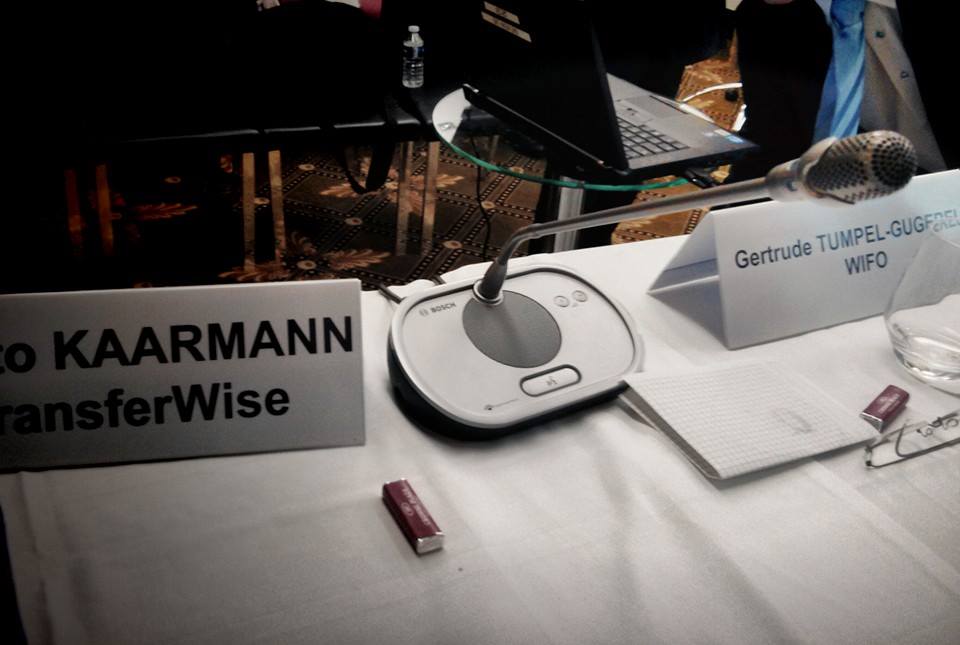
Cost of making payments
Banque de France reported that the cost of making payments is 1% of the world’s GDP or $800bn annually. The big number translates into 2 extra holidays for everyone, everywhere, every year.
They complained that 16% of all payments in France are still made using a paper chequebook. Processing a cheque costs ~€1 to the bank, which is then directly or indirectly charged back to the customers. Read More
Hustle through to longevity
The black tie awards ceremonies, like the one I attended yesterday, are usually quite embarassing. It often involves pretentous entertainment followed by old boys handing pieces of machined glass to entrepreneurs, who have just hit early revenue. Instead of being wined and dined, we founders should really spend the night in the office building and selling the product.
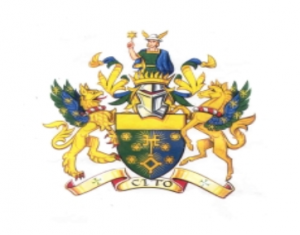 But this event was better than usual. And what made the difference was a remarkable panel, made up of a different generation of founders. These guys had 15-20 years of success on the rest of us in the audience.
But this event was better than usual. And what made the difference was a remarkable panel, made up of a different generation of founders. These guys had 15-20 years of success on the rest of us in the audience.
- Mike Lynch, floated Autonomy, sold to HP for $11bn
- Mike Tobin, floated hosting company TeleCity, £2bn market cap
- Mark Lancaster, floated content tools SDL, £300m market cap
Initially the panel, themed “To float or not to float?” felt totally out of place, as the only people excited by IPOs were the accountants, who sponsored the event. The hosts referred to the panelists as “rockstars”, which makes us young entrepreneurs nothing more than “punks”. But in the end this panel turned out incredibly inspiring.
Sometimes it feels that London is lacking the “previous generation” of enterpreneurs, particulartly in contrast with the Valley. I am starting to realise, that our previous generation just is a bit harder to find as they live in a different ecosystem to us.
Think longevity
Counterintuitive as it may be for a startup, but the sooner we think about “what do we need to do and be, in order to be a meaningful player 10 years from now, 20 years from now?” Do I believe that Google is going to be around in 2033? Definitely. Amazon? Most likely. Apple and Facebook? Depends.
If you can build the product to become a long-term infrastructure that powers this world, then you’ll be in it for the long run.
Hustle through
It was somewhat relieved to hear, that although these guys had a vision, they had very little clue about how to achieve that. They hustled a lot. As long as you keep the end goal in mind and don’t err to the side of dishonesty, then hustling works. You just need to keep selling what you are making
Plan your mindshare
When it comes to floating, the panel agreed that it this made their life easier only in one respect – it became much easier to raise money. Yet two things will happen. First, you will lose control of the fate of the company. If an offer is made to buy at say 30% premium, then the company will be sold and there is nothing you as a founder or ceo can do about it. Secondly, you will end up spending enormous amounts of time with analysts and shareholders. Mike suggested that investor relations now takes 60% of his time. Scary to compare that with the meager 5% that we are spending today between me and my co-founder.
The 6 things that make a startup team awesome
The TransferWise team is growing up fast. We are equally two years from the launch and two years from the first employee joining the founders. Looking back at this roller-coaster ride, the team has achieved something quite magical – a revolution in the way people think about transferring money, testamented by becoming #2 most trusted financial service in the UK and having saved our customers more than £2M in bank fees.
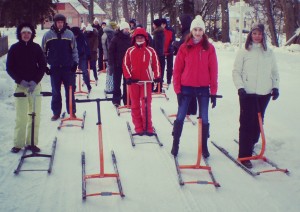 When we got the whole team together a few weeks ago to celebrate, we thought hard about our success so far. What has this team done to be voted #1 startup in the Europas and earn all that customer love leading to throught-the-roof net promoter score. What have we done right, compared to thousands of our peers, who have not pulled that far. How can we do more of it?
When we got the whole team together a few weeks ago to celebrate, we thought hard about our success so far. What has this team done to be voted #1 startup in the Europas and earn all that customer love leading to throught-the-roof net promoter score. What have we done right, compared to thousands of our peers, who have not pulled that far. How can we do more of it?
1. Teamwork
We are a tight crew and super supportive for each other. Not only does it create a warm feeling of appreciation, it gives us the sense of safety and security needed at our neckbreaking pace. Days when the customer support load jumps up, we have the entire marketing team working the phones and email.
Every one in the team takes responsibility. And once she takes responsibility, she does not drop the ball. In fact, whenever we hire, I think: “If her and I were handling a sailing boat across the rough waters, would I feel comfortable?” The answer can only be yes.
Something else I have noticed – there is a good sense of pride in the team. We are proud for what we do, we are proud to be great at what we do. Of course the Startup 101 is -only hire superstars or the people you believe will grow into superstars.
2. Speed of Execution
Speed is the dearest, yet the most fragile asset at a startup. The hardest distance in running is the 400m, where the winning formula is defined as: 0-100m run as fast as you can, 100-200m keep the pace, 200-300m accelerate and 300-400m is the sprint. I feel we have maybe just passed the 50m mark.
What are the things that give us speed and what slows us down? Finding bottlenecks and dealing with them effectively. After launching, our main bottleneck was getting customers, we focused most on our brainwaves on this. Then we had customers, but were struggling to support them and manage their transfers. We built dedicated teams to work the phones and manage payments. Today we need to gain speed in developing and extending our product.
Bringing the entire team up to the same agility as product development and having everyone comfortable with the pace is tricky to manage and needs a lot of communication. We cannot churn out product features with the engineering team, while the operations team is not comfortable supporting new payment method or when support unable to help the customer use it.
3. Persistence
Whatever we build, we always build for the long run – product, team, culture. Today we are building a 200-500 person strong team to support the majority of international transfers for the 1st world consumers. Such a distant goal requires persistence. It requires to recognise that after this lap there will be the next one, and then the next one. It will get harder and we will need to run evern faster.
In practice this means, that we have not met 99.99% of our customers yet. We have pushed only a tiny amount of code in the context of what we will push. We have seen only the skirmish of challenges in the context of thunderstorms we will deal with.
It means that we have to be friendly and kind to our partners and people who we work with. Even when our banking partners cock up royally – we say “It’s okay, let’s learn and do better next time“.
4. Precision
We are a bunch of maximalists. Every one of us personally believes, that she can deliver the best quality code, ux, customer support or payment processing in the world. And that is hugely powerful.
Our high self-esteem is empowered by the way that we measure everything – our payments team know to the minute how long on average a payment took to Ireland last week compared to Poland. Customer support knows how fast we respond to emails and what is the percentage of new users, who need help with their first payment. Engineering team knows, how many new bugs we released last week. Some of us have done things to Google Analytics, that google engineers did not know to be possible.
Measuring helps us see immediately, where we can improve. It makes our decisioning calculated and our communication precise and fluff-free.
5. Resources
The team needs resources and a perfect environment to be successful. This productive environment is worth an investment. In fact if there is anything you can buy to make the team more productive, you should go shopping immediately.
If you don’t have money, build a small team. If you need a bigger team, go and fundraise. And be open about the core finances of the enterprise, transparency helps most during rough times.
Managing our resources wisely and being prudent with our finances has become organic in everything we do. We’re planning for a safe passage, when the times won’t be as jolly.
6. Support network
As founders, we hardly ever take important decisions without asking someone, who has crossed a similar patch before. Along the way we have become close with many remarkable people, who we return to on a regular basis for advice.
Now this support network is being stiched into the team, for everyone needs a mentor. Each of us can do remarkable things, but let’s forget that others have been remarkable before us. Finding a mentor takes quite a bit of stepping out of one’s comfort zone. While many in our team have a mentor, I’ve noticed that people who set up a regular cadence for meetings and give their mentors a bit of responsibility in their own success thrive best in building their personal support netowork.
With every month, these characteristics of our people are becoming more and more apparent to me. I am smiling to observe, how these qualities add a ton of awesome to our team when comparing with other young startups at our stage who are all out there looking for their mojo. We are finding our mojo and it is pretty magical.
Customer research with surfers and poker teachers
Last weekend we took a short break with Kriss to go kiting in Tarifa – the southernmost spot in Spain on the windy Strait of Gibraltar. I knew that we had a few customers in the area, so the night before flying out I picked 14 of them and wrote a spontaneous note.
Hi Dan Hope you don’t mind the direct approach. I am the co-founder and CEO of TransferWise – the new money transfer platform, which I hope you have found useful. This weekend brings me down to Gibraltar, Algeciras and Tarifa for a couple of days of holidays. We have a number of great pioneers in this area including you. I was wondering if you are in the area, would have time to meet up and help me with feedback on how we can improve the service + how can we reach more people in the area? Let me know if you have time,
Kristo
The next morning we touched down in Gibraltar and I had already 8 responses in my mailbox. It was totally overwhelming. Managed to set up two different meetings – a breakfast with Dan in Tarifa and a dinner with Gibraltar expats in La Linea, the Spanish town just across the border.
We have always made a big deal about speaking with our customers. Pre-launch it was friends and beta-adopters, who helped craft the product. After launch I did most of the customer support calls, each an expedition into the mind of the customer. Seeing the product we had built now through the eyes of the customer was often revealing.
As the customer base grew and we set up the dedicated customer support team, I pledged to speak with 5 new customers a week for general feedback. This was great for a couple of weeks, until I got so buried under with growing the team, that I started missing my 5 calls per week schedule. Fortunately Nilan recommended to start collecting external reviews. We hooked up to Trustpilot, asking our new customers leave a few words about their experience.
This has been fantastic, as people when unprompted write the first thing that comes to their mind and what matters most to them. Each of the 600+ reviews have been a positive spark in the day for everyone in the team and have taught us more about our product that we openly realise.
But nothing meets sitting down with your customer, taking all the time you need and hearing him out.
Breakfast with Dan Winer – surfer turned web developer in Tarifa
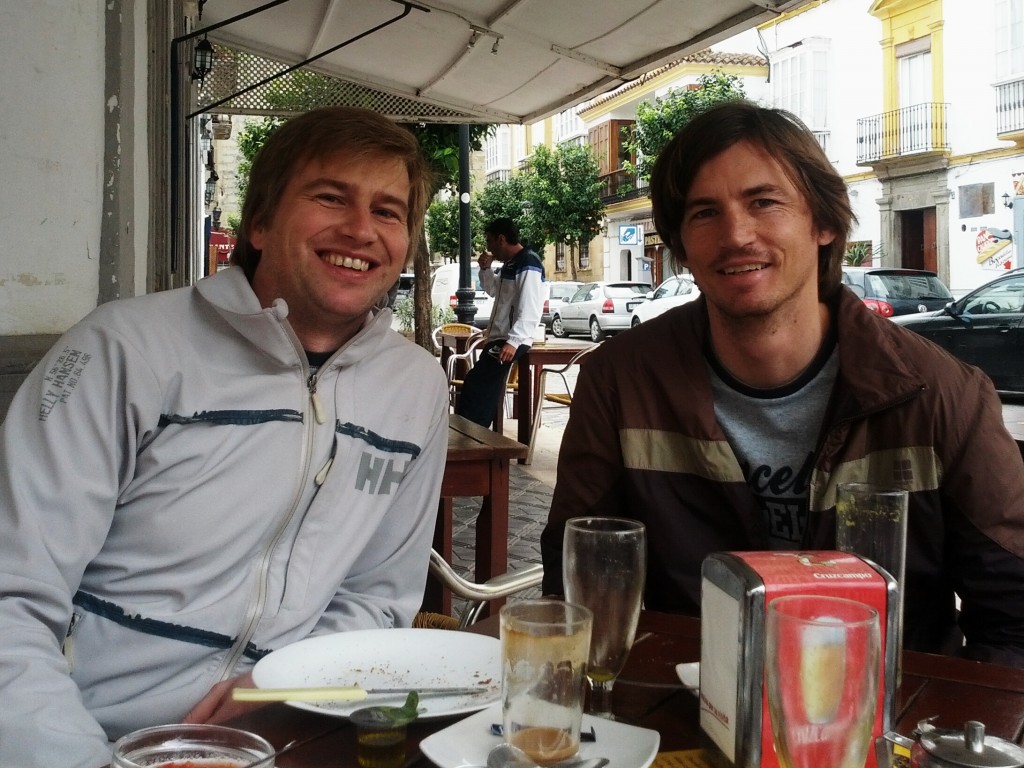 We met Dan for breakfast at 10am on Saturday. I was back from my morning jog on the beach and he had already been catching the waves since 7am. Normally this would be the time of the day, when Dan peels off his neoprene suit and starts his day as web developer, working remotely for a Gibraltar company who had bought out his ecommerce product.
We met Dan for breakfast at 10am on Saturday. I was back from my morning jog on the beach and he had already been catching the waves since 7am. Normally this would be the time of the day, when Dan peels off his neoprene suit and starts his day as web developer, working remotely for a Gibraltar company who had bought out his ecommerce product.
Dan is one of the many people, who first come to visit Tarifa, then visit more often and eventually stay there. He was raised by British expats in Botswana, travelled the world as a semi-pro windsurfer from the age of 16 until homed in on Tarifa and settled down 6 years ago.
Dan said a colleague at work recommended TransferWise and he is now using it to transfer his salary from the Gibraltar company to his Spanish account and it has become a de facto option for him when sharing costs with friends in Pounds. He told me that he did not trust our website at first – any scammer can come up with a slick page and a bunch of case studies. So he did his research and after finding BBC and Wall Street Journal posts about TransferWise he got comfortable enough and is not looking back since. He gave me some good advice on how we can improve the experience for first time users and how best to approach British expats in the southern Spain.
Dinner with Kamen and Andrei – poker teachers in Gibraltar
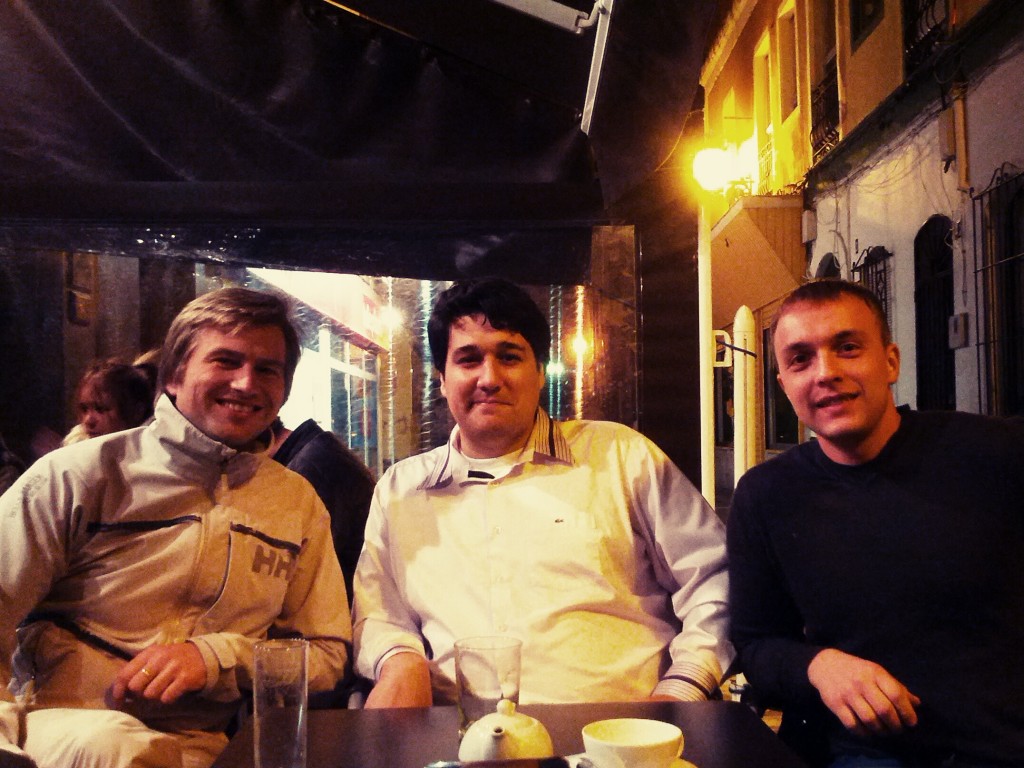 To our great surprise it turned out that Kamen and Andrei work for the same company in Gibraltar – PokerStrategy.com. As expats from Bulgaria and Estonia, they were lured to the Rock by an interesting job, decent pay and 340 days of sunshine. Apparently their poker school is one of the largest employers in the “country”, employing more than 100 people. Gaming and betting companies make up most of Gibraltar’s workforce.
To our great surprise it turned out that Kamen and Andrei work for the same company in Gibraltar – PokerStrategy.com. As expats from Bulgaria and Estonia, they were lured to the Rock by an interesting job, decent pay and 340 days of sunshine. Apparently their poker school is one of the largest employers in the “country”, employing more than 100 people. Gaming and betting companies make up most of Gibraltar’s workforce.
Gibraltar is the most banked country in the world with one bank for every 1,300 people. Most people live on the Spanish side, yet commute to work in Gibraltar and get paid in Sterling. Exchanging the salary is a problem to almost everyone working on the peninsular. At a bank or a currency exchange boutique my new friends were faced with 7% – 15% spread. Poker players are savvy with arithmetics. I learned that most people still take out cash in sterling on the GIB side, do an exchange on the way and pay into a Spanish bank account on the other side. Some wise guys use underground exchange offices operating in souvenire shops. These are not licensed, but give the best rate.
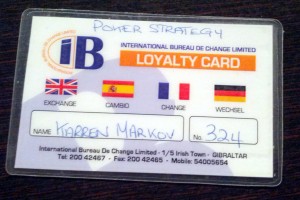 Kamen told me lots about how the poker sites operate, how they do currency exchange and where players get ripped off on the exchange rate. It was fascinating as it looks like players are having a real problem moving their funds in and out of poker sites in USD without taking a hit on the exchange. We might have a workable solution soon for them soon. Once we fix their problem, news will travel super fast in this savvy and calculating community.
Kamen told me lots about how the poker sites operate, how they do currency exchange and where players get ripped off on the exchange rate. It was fascinating as it looks like players are having a real problem moving their funds in and out of poker sites in USD without taking a hit on the exchange. We might have a workable solution soon for them soon. Once we fix their problem, news will travel super fast in this savvy and calculating community.
Speak with your customers, many and often
Meeting customers is awesome and incredibly useful. Not the “friends of friends”, not the early-adopters, but people who genuinely found your product to scratch a personal itch.
Being overloaded with work or having “more important” things to deal with (e.g. boards, fundraising, etc) should never be an excuse for a small business owner not to meticulously reach out to customers and listen to what they have to say. Trust me you will learn lots.
I loved how we managed to weave this bit of research in to a weekend of kiting. Next weekend Kriss and I are heading out to boarding in La Grave, looking forward to meeting some TransferWise’rs out there.
Tender thrills of starting up
My old friend Fred invited me for a walk. Soon after exchanging recent news about ourselves and partners, we got to the real theme for our afternoon stroll – Fred’s startup.
Well, there is no startup yet – but there is the idea, the vision, the conviction and all the same questions that I had 3.5 years ago, when I started building TransferWise. I very much enjoyed this session today. Not only did I feel good about helping my friend by sharing hard learned experience, thinking back to the beginnings of my journey helped to crystallise a few key ideas that will be worth some computer ink.
 Fred is fixing the world’s teaching practices at a global non-profit. He sits on the board of an underprivileged school in London. Yet he feels that he can do more. He can build tools that make learning interesting again. “Imagine what school could have been like, if they had taught us something interesting?!” he brought back memories from high school.
Fred is fixing the world’s teaching practices at a global non-profit. He sits on the board of an underprivileged school in London. Yet he feels that he can do more. He can build tools that make learning interesting again. “Imagine what school could have been like, if they had taught us something interesting?!” he brought back memories from high school.
Vision vs. demo
Couple of days ago Fred sent me a few slides explaining the vision. We quickly concluded that it is all necessary, but it is way too early for any pitch. Today, all the focus and energy should go into building the first iteration of the product and getting it in front of teachers and pupils. The vision will be 100x more powerful once there is a working product, a demo and a couple of success stories backing it up. As the Eskimos say, time spent sharpening your knife pays back when you’re skinning the bear.
I’ve now noticed that people in larger organisations have the reflex of creating a bunch of slides to get “buy-in” to their idea, before they start acting on their vision. I used to create 5 of such decks in Deloitte every day. Writing the first line of code or the first page of the book is where you really commit. Portentuous like getting naked in front of a girl for the first time.
Team
“With a group of 15 amazing people we could get this off the ground. OK, I will need at least 2-3 partners for the pilot.” Sure, you need to start networking and recruiting ASAP. it is one of the 10 things you do in parallel and only to the extent that it does not distract you from building and testing the product. We found that Fred really only needs a part-time experienced industry expert to consult and brainstorm on product design in his first iteration. Foresight helps, but early stage teams are built one person at the time.
The work – life – startup balance
 Some of us have old money. The rest of us, like me and Fred, have a job. When do you leave your job to pursue your vision? If you’re one of us, you don’t. Hey, you just said I need to build a product here? Sure. You just work more. And you hibernate the rest of your life. If you’re a founder type, you are likely to work 10-11 hours per day on average and it will take immense discipline to prune your day job down to the absolute minimum. I cannot do a lousy job, I cannot let my team down! Yet, you will need every other waking hour to work on your startup.
Some of us have old money. The rest of us, like me and Fred, have a job. When do you leave your job to pursue your vision? If you’re one of us, you don’t. Hey, you just said I need to build a product here? Sure. You just work more. And you hibernate the rest of your life. If you’re a founder type, you are likely to work 10-11 hours per day on average and it will take immense discipline to prune your day job down to the absolute minimum. I cannot do a lousy job, I cannot let my team down! Yet, you will need every other waking hour to work on your startup.
This was the hardest part for me. For two years I worked ridiculous hours. Couple of practical things that helped me at the time and I suggested my friend to try.
1. Hire help
You will quickly find that some tasks in building the product will take a lot of your time and can be outsourced. For me, this was writing code, for Fred it will be something different. A side effect of being a hard-working founder type and having no “life” any more is a bunch of leftover cash from the salary that you don’t have time to spend. Find someone who is willing to help you out on a project basis. Don’t outsource building the product, rather buy in some skills or help with particular tasks. Spending your own salary on this will give you a nice optimisation incentive. Peopleperhour, Elance, Behance all have talented and motivated people from all corners of the world.
2. Milestones, iterations and deliverables
Working with hired help makes things suddenly very real. You are thousand times more motivated to wake up 6am for a Skype call with your new team mate, who will preferably be in a different timezone. You will review work and provide feedback on your commute to work. You book the conference room to do customer support for your beta users. You skip drinks after work with your colleagues to finish a piece of copywriting that is the last thing needed for shipping the milestone.
3. Take a holiday, then take a sabattical
Relationships matter. Maybe you’re not fond of your boss, but you care about your team. Don’t lie and call in sick, when you are not. Plan a holiday in advance. Send your wife or girlfriend to the beach, lock yourself in, build and ship.
If you have a good relationship with your bosses at work, tell them as soon as you are convinced that you want to do this full time and can support yourself for a year. Tell them 6 months ahead, if you’re not directly competitive, they will want to keep you around even part time, while they look for your replacement.
When is it time to Launch?
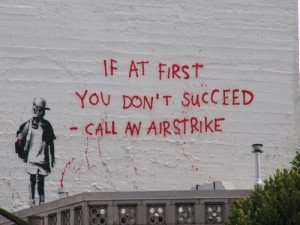 Launch is the moment, when your product starts its public life. Launch before your product has meaningful appeal to a wider audience and you wasted a chance. Launch late and you may lose the first mover advantage. Launch when you have depleted your access to new customers. You have gotten all of your friends, family and relevant extended network try your product and give feedback. You have been running live in silencium for a while and captured some random traffic that reaches your web or app. TransferWise was live and fully operational for 8 months before we launched. Way too long in retrospect.
Launch is the moment, when your product starts its public life. Launch before your product has meaningful appeal to a wider audience and you wasted a chance. Launch late and you may lose the first mover advantage. Launch when you have depleted your access to new customers. You have gotten all of your friends, family and relevant extended network try your product and give feedback. You have been running live in silencium for a while and captured some random traffic that reaches your web or app. TransferWise was live and fully operational for 8 months before we launched. Way too long in retrospect.
It was fantastic to re-live these questions, consideration, fears and excitement today. So similar to my own from 3.5 years ago. Yet today they are Fred’s fears and fortunes and I feel priviliged standing next to another great start.



